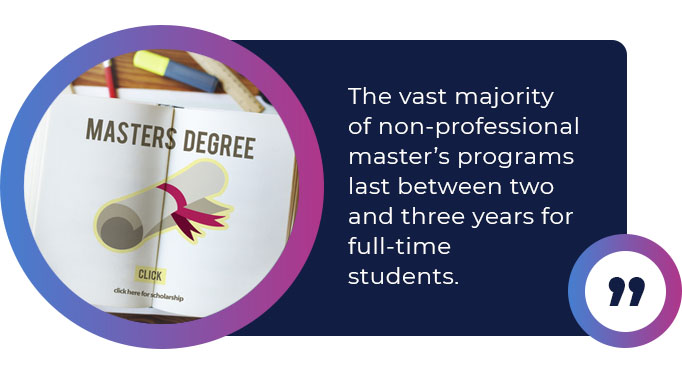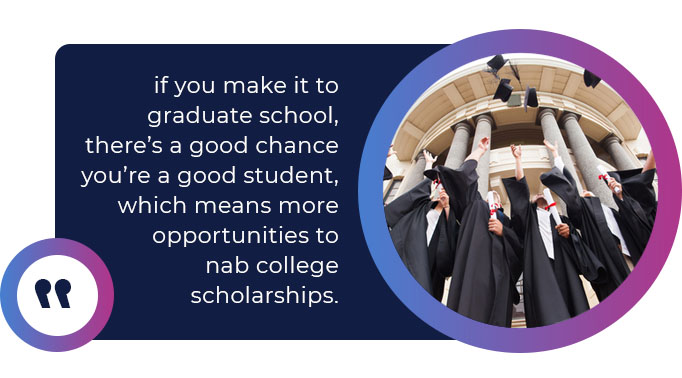Earning a four-year college degree is an amazing way to start yourself off on the path to a fulfilling, rewarding, and stable career. Those who have a bachelor’s degree or higher have the lowest rate of unemployment in the country, with 86 percent of bachelor’s earners holding a job. But getting a job immediately after you graduate isn’t the only option on the table. If you’re open to spending a few more years in academia, you might want to consider obtaining an even higher degree in grad school.
Advanced study in a field beyond your bachelor’s usually means more school, at least for two more years and, for many, even more. The path to a graduate degree is long, but it’s that way for a reason, as it allows you to zero-in on one specific thing and become a real expert in that field. But is it worth it? Longer programs come with significantly higher price tags and lengthy, stressful time commitments. In this guide, we’re going over everything you need to know about graduate school to determine whether this route might be one worth pursuing.
What Is a Graduate Degree?
What is a graduate degree, exactly? It’s defined as an advanced academic degree in a specialized field of study, pursued after one has already obtained a bachelor’s degree. These degree programs lay the foundation for a number of high-paying careers across thousands of industries. Master’s degrees are the most common type of graduate degree, but they are generally given in three realms—the Master of Arts (MA), Master of Science (MS), and Doctor of Philosophy (PhD).
Often, these kinds of degrees are terminal, meaning they are the highest level of formal education one can obtain in a broad academic or research track. Such is the case with degrees such as the Master of Fine Arts (MFA) and all PhDs. Others serve as stepping stones for degrees that are higher still, such as master’s programs that are prerequisites for PhD programs.
What About Law School, Med School, etc.?
Grad school is often distinguished from “professional school,” which generally refers to those post-undergraduate programs that ready students for a specific career rather than a field of study. For example, the Doctor of Medicine (MD) and advanced nursing degrees—like a Certified Registered Nurse Anesthetist (CRNA) or Nurse Practitioner (NP)—are considered professional degrees. The same goes for the Juris Doctor (law) and the Master of Business Administration (MBA).

How Long Does it Take to Get a Graduate Degree?
How long it takes to finish grad school depends entirely on your program, but the vast majority of non-professional master’s programs last between two and three years for full-time students. On the other hand, it will take you a lot longer to score that coveted PhD—the median amount of time it takes students to complete a PhD program is 7.7 years! All in all, graduate students can expect to complete between six and 12 years of higher education in total (including their undergraduate years).
Is Grad School Worth It?
There’s no denying that graduate school can help you earn more money and build a more fulfilling career throughout your life. In fact, data shows that those full-time workers with a master’s degree actually earn around $12,000 more per year than those with a bachelor’s degree only. But grad programs aren’t cheap and tend to ring up for more than undergraduate ones.
With that being said, if you make it to graduate school, there’s a good chance you’re a good student, which means you’ll get a lot more opportunities to nab college scholarships. Additional funding opportunities often open up in grad school as well, including graduate assistantship programs that allow students to work on campus as a professor, tutor, or elsewhere in exchange for free tuition and a small stipend for living.

So whether or not grad school is worth it totally depends on your situation. Given that it can lead to higher income potential, more job security, and an amazing title (who doesn’t want to be a master?), pursuing a graduate degree may definitely be something you want to consider now or down the road!
Interested in talking with other students and professionals about getting a graduate degree? Join Community, our online discussion board covering topics from Career Exploration to Higher Education and more!




